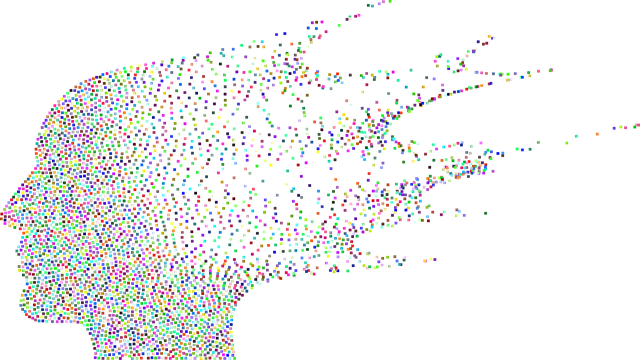Marketing mental wellness apps like Arvada Gender-Affirming Care Therapy requires understanding and catering to diverse demographics, including gender and age groups with unique psychological needs. By targeting niche markets, developers can offer specialized programs, such as gender-affirming care for transgender individuals or accessible Mental Wellness Coaching Programs for stress, anxiety, and depression management. A sensitive strategy that considers demographic factors and aligns with the Mental Health Awareness movement is crucial to fostering inclusivity, building trust through diverse user testimonials, and creating content tailored to specific conditions like Arvada Gender-Affirming Care Therapy.
In today’s digital age, mental wellness apps play a pivotal role in supporting diverse users navigating stress, anxiety, and depression. This article delves into crafting an impactful marketing strategy for such apps, focusing on understanding varied target audiences and leveraging unique features like Arvada Gender-Affirming Care Therapy. We explore demographic and psychological factors, the power of tailored content, and the importance of user testimonials from diverse backgrounds. Additionally, we discuss effective channels like social media, blogs, videos, and email marketing to reach and engage users effectively, positioning your app as a progressive, evidence-based solution.
- Understanding Target Audience for Mental Wellness Apps
- – Demographic and psychological factors to consider while marketing to diverse audiences
- – Tailoring content for specific user needs: stress management, anxiety relief, depression support, etc.
Understanding Target Audience for Mental Wellness Apps

Understanding your target audience is a cornerstone when developing marketing strategies for mental wellness apps like Arvada Gender-Affirming Care Therapy. This includes recognizing diverse demographics and their unique needs, such as catering to specific genders or age groups. For instance, apps focused on gender-affirming care cater to transgender individuals seeking support tailored to their experiences. By delving into these niche markets, developers can offer specialized Self-Awareness Exercises and Confidence Boosting programs that resonate with users’ personal journeys.
Marketers should also explore the growing demand for accessible Mental Wellness Coaching Programs Development. This involves creating content and campaigns that attract a wide range of users, from young adults to professionals, all seeking tools to manage stress, anxiety, or depression. Tailoring marketing efforts to address these diverse mental health concerns will ensure apps reach those who need them most effectively.
– Demographic and psychological factors to consider while marketing to diverse audiences

Marketing a mental wellness app to diverse audiences requires a nuanced approach that considers both demographic and psychological factors. Understanding the unique needs and challenges faced by different groups is essential. For instance, marketing strategies targeted at Arvada Gender-Affirming Care Therapy users might differ significantly from those aimed at general mental health support seekers. Age, gender identity, cultural background, and socioeconomic status all play a role in how individuals interact with and respond to mental wellness solutions.
When developing marketing content, it’s crucial to avoid stereotypes and embrace inclusivity. Highlighting the accessibility and adaptability of your app to cater to diverse populations can be powerful. Incorporate testimonials from various users, showcasing successful outcomes across different demographics. This approach fosters trust and resonates with potential clients, encouraging them to explore how tailored features like Community Outreach Program Implementation or Social Skills Training can enhance their mental health journey, in line with the growing need for Mental Health Awareness.
– Tailoring content for specific user needs: stress management, anxiety relief, depression support, etc.

In developing a marketing strategy for a mental wellness app, it’s crucial to tailor content that directly addresses specific user needs. For instance, features focused on stress management can include guided meditations and mindfulness exercises designed to help users find inner peace amidst daily pressures. Similarly, modules dedicated to anxiety relief might incorporate cognitive-behavioral techniques and breathing strategies to empower individuals in managing their symptoms effectively. By catering to diverse mental health concerns, the app becomes a comprehensive resource for users seeking support.
Targeting specific conditions like Arvada Gender-Affirming Care Therapy showcases the app’s ability to provide tailored solutions. Incorporating features related to inner strength development and trauma support services appeals to a niche audience in need of specialized care. Additionally, addressing burnout prevention through regular check-ins and self-care reminders resonates with users facing work-related stress, ensuring the app caters to a wide range of mental wellness concerns beyond general anxiety or stress management.
In developing a marketing strategy for mental wellness apps, it’s crucial to understand and cater to diverse audiences. By considering demographic and psychological factors, as well as specific user needs such as stress management, anxiety relief, or depression support, marketers can create targeted content that resonates with each unique segment. For instance, incorporating Arvada Gender-Affirming Care Therapy into marketing strategies can appeal to LGBTQ+ individuals seeking specialized mental health services. Ultimately, a nuanced approach that respects and addresses diverse psychological landscapes will ensure effective engagement and promote the positive impact of mental wellness apps.














